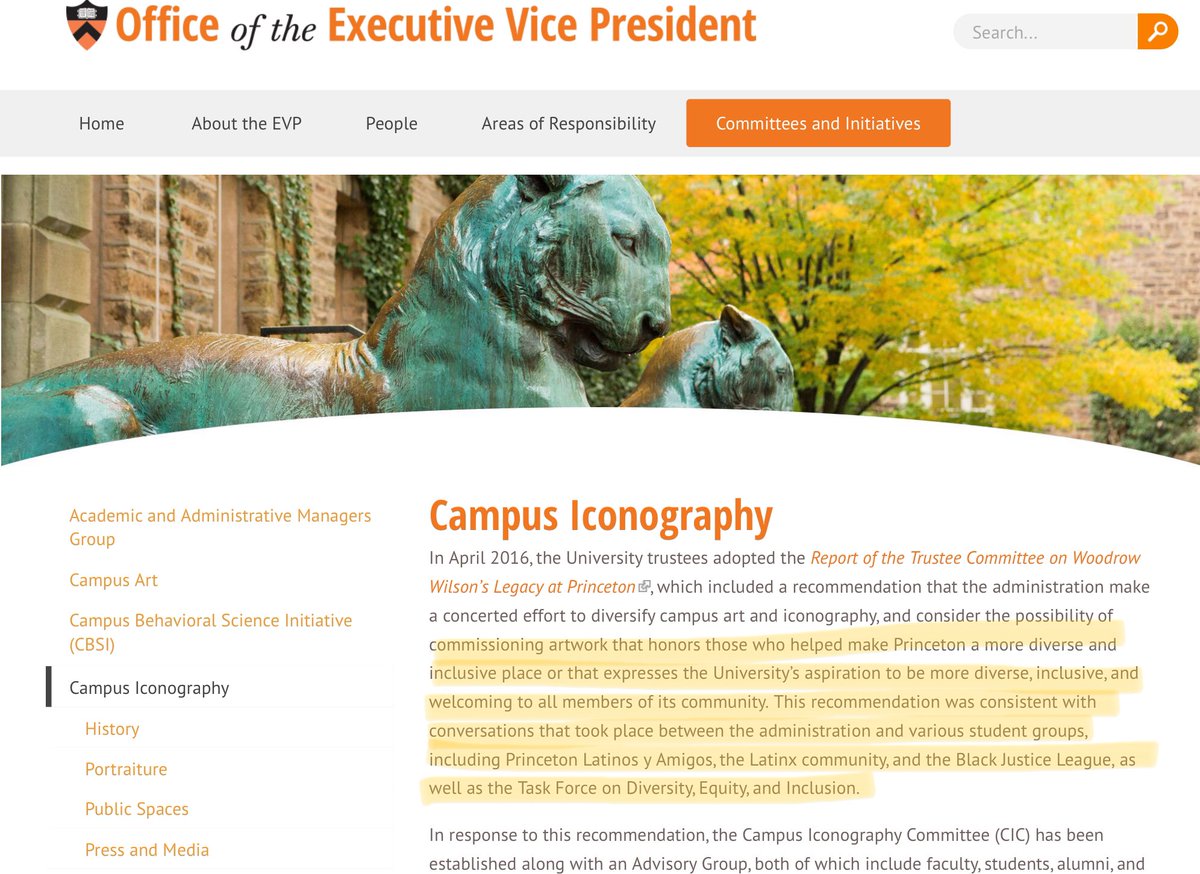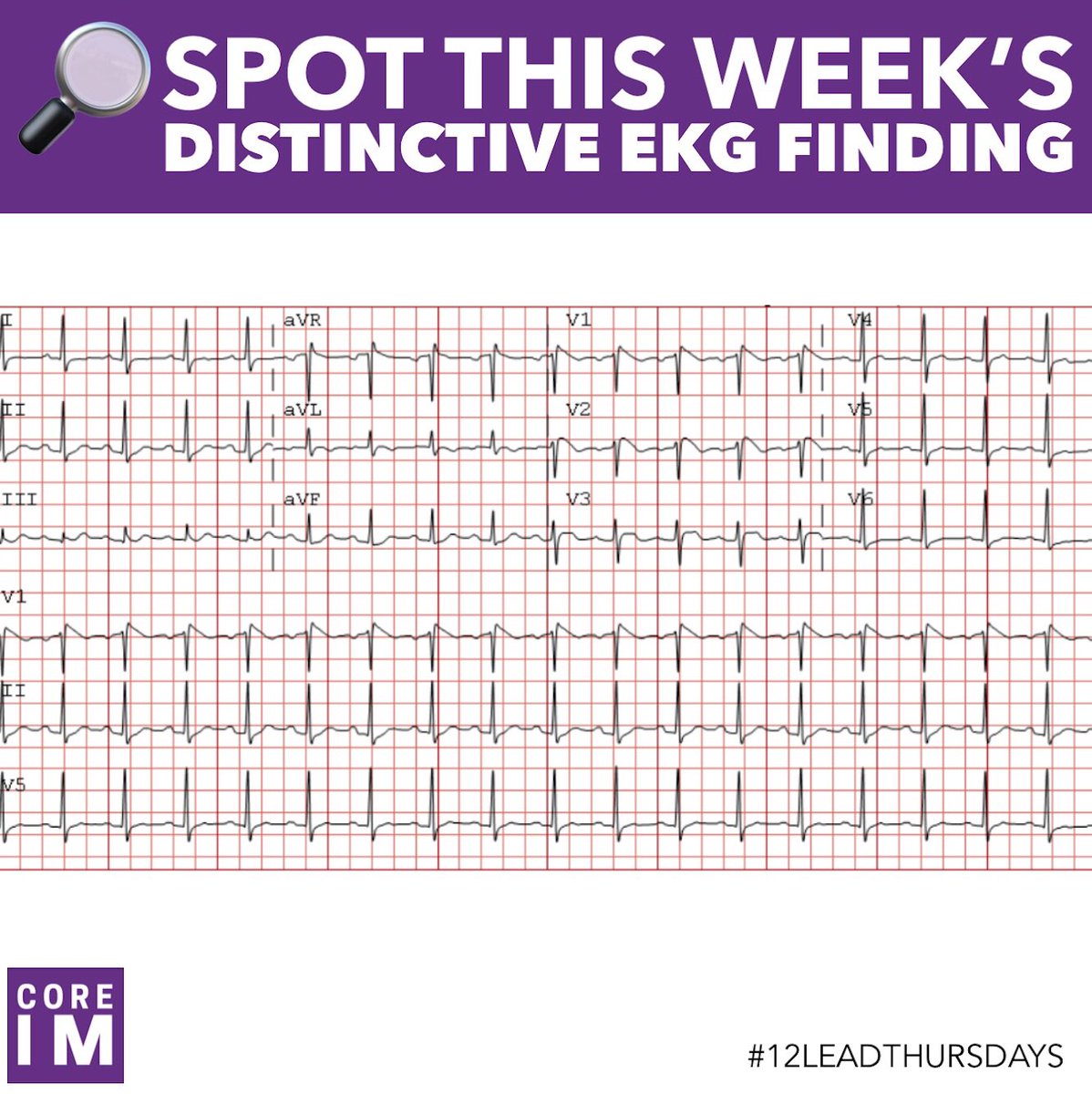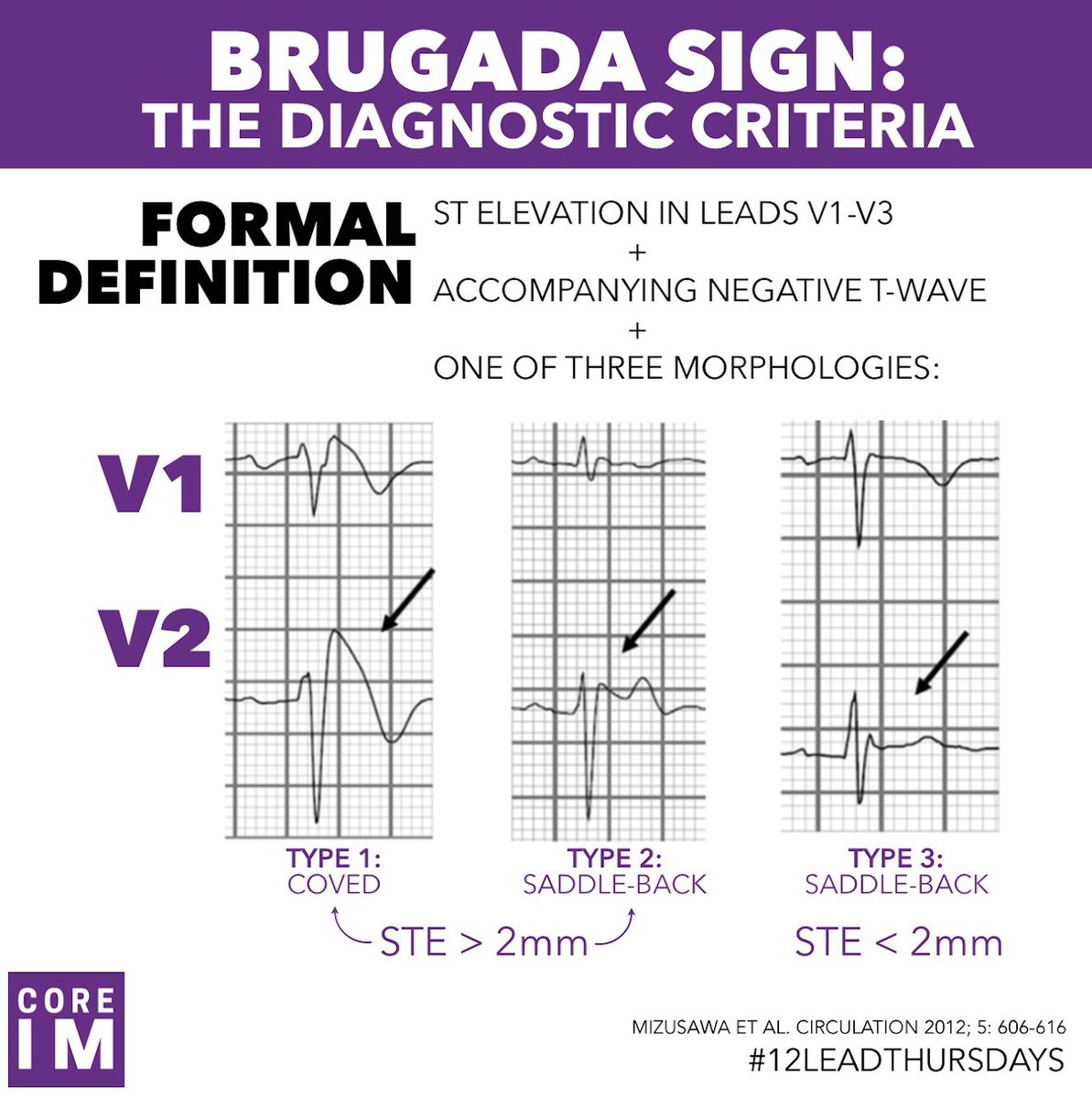So here’s my take:
“Take Two Aspirin + Read a Curriculum”
THREAD.
#MedTwitter #SoMeDocs #DoubleDocs
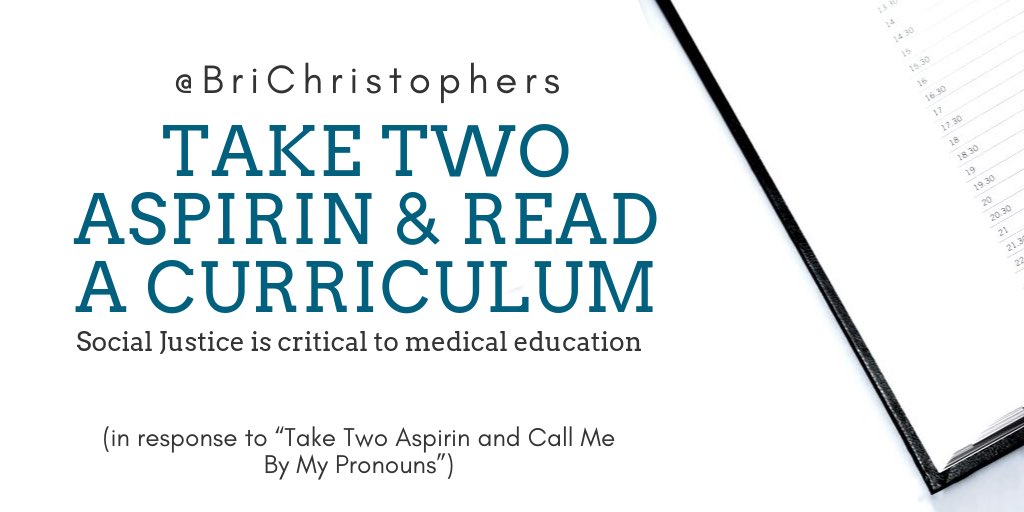
Starting w title, we can see that Dr. Goldfarb has an issue w pronoun conversations. Using proper pronouns when referring to someone is a sign of respect, which we should be showing to all of our patients...
#ThisIsOurLane #GunReformNow #PutKids1st
#ClimateStrike
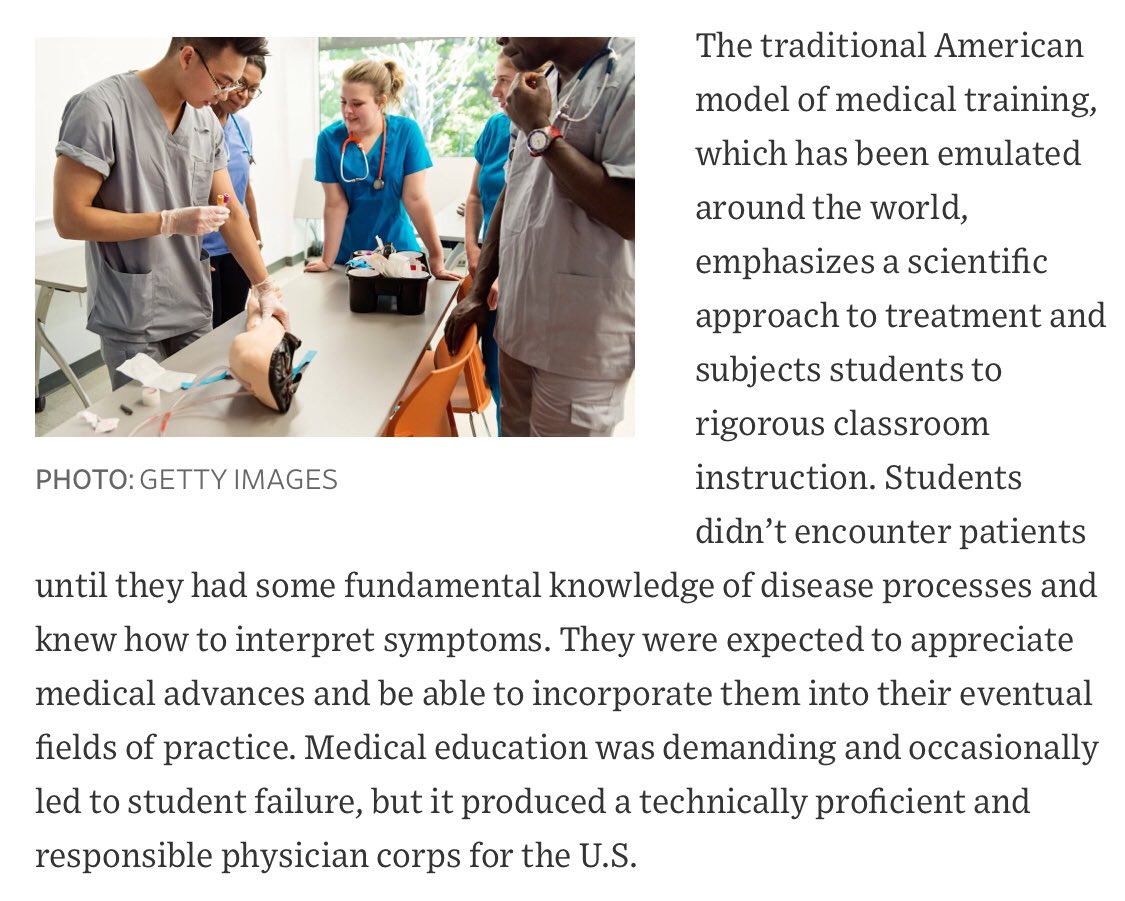
Also ping to @ml_barnett’s point:
Spending hrs getting insurance to approve treatment for a patient is advocacy.
Talking to patients about gun safety is advocacy.
Using an interpreter to make sure an encounter is clear is advocacy.
Connecting a patient to victim services is advocacy.
Ensuring that your exam rooms have tables that are accessible to those in wheelchairs or w movement restrictions is advocacy.
Recognizing med + social risk factors for future disease + having a convo about prevention is advocacy.
Respecting a patient’s belief structures + inviting a chaplain into convo is advocacy.
Please share your comments and let me know where you agree/disagree/want to add nuance.
You can access this thread (and my other threads) in document form at tiny.cc/ThreadsByBri
WSJ Editorial Board: Corrupting Medical Education
wsj.com/articles/corru…
*sigh*
inquirer.com/health/social-…
I’m human + apparently know way more about SNARE proteins + reflex arcs atm (neurobio, told you we learn basic sci) than arithmetic
Correct: 2.5%, which is STILL 1.74 min in following tweet.
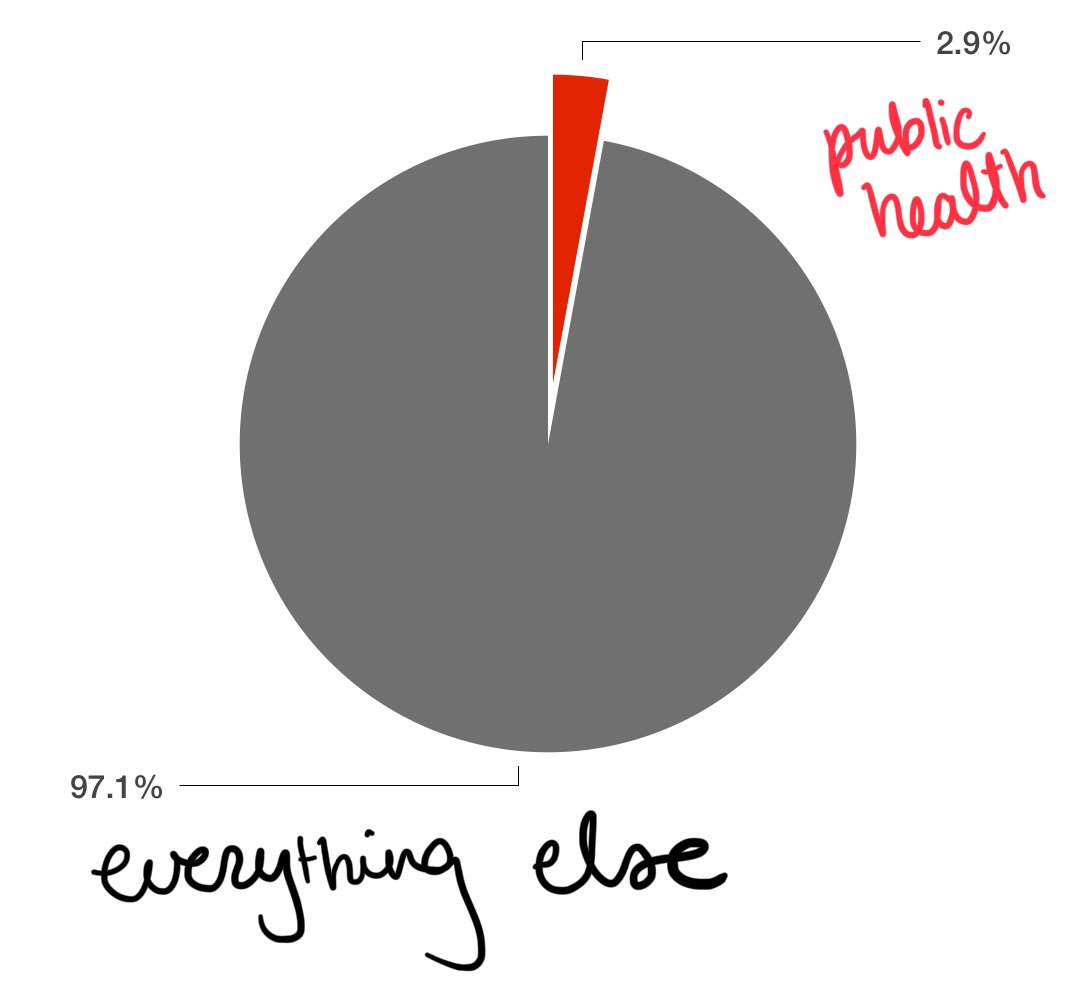
Clearly something led the editors to think that this title/subtitle would
A) match the body of the article
B) catch folk’s attn
so I’m pretty sure what I point out still stand even if he didn’t write them







